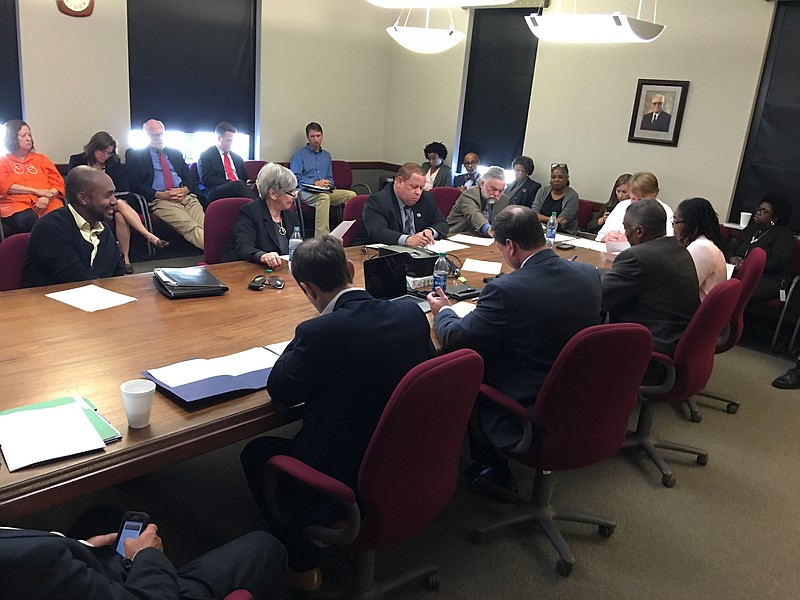The Chattanooga Police Department may get two crisis response advocates who would provide in-the-field services to victims and survivors of crime alongside officers from the department's neighborhood policing bureau.
On Tuesday, the Chattanooga City Council authorized the police department to apply for a $450,000 grant for law enforcement-based direct victim services from the Department of Justice. The city would not be required to match any money for the grant.
The grant, which is a combination of three grants the department already receives, would be broken down into $150,000 per year for a three-year period.
"[The grants] are all shifting, and they're not going to exist in their current form," Caroline Huffaker, victim services coordinator, told council members.
In the applications, the Department of Justice is looking for agencies that plan to enhance or develop victims' service programming with a strong focus on areas with high crime rates. Agencies can't use the funding to support already funded initiatives.
The Chattanooga Police Department already has a victims' services unit, but the two new hires would bring those services to the field.
"A lot of times, our current advocates and case managers are spending time with the investigations, and we wanted to bring services out in the field and address patrol-related issues," Huffaker said.
In many instances, cases are cleared and handled entirely at the patrol level.
"A lot of times, what you see with cases [is] if it's cleared at the patrol level it doesn't need to go on for further investigation because they were able to make an arrest on scene, take out warrants," she said.
To identify the specific areas and times of day that see most violent crime - homicide, rape, aggravated assault and robbery - the crime analysis unit gathered data from 2015 to June 2018.
The team determined the busiest hours for violent crime are from 3 to 10 p.m. and in areas that include the 37407 and 37421 area codes, with 826 and 764 instances, respectively, over the last three years.
One thing to keep in mind, Deputy Chief Eric Tucker said, is the square mileage of each ZIP Code.
"There is a considerable size difference," he said, between 37407 at just under five square miles, covering Highland Park and Orchard Knob, and 37421 at about 30 square miles, including Hamilton Place mall and surrounding areas.
Regardless, advocates will be assigned to the ZIP Codes that are emerging as the most violent.
"If another part of town begins to trend towards being the highest with those types of occurrences going on, we can then reallocate and reassign them to meet the needs of the community," Huffaker said.
In general, victims services advocates aid victims by responding to emotional, psychological and physical needs through follow-ups, addressing safety needs, informing victims of their rights, and providing information on the criminal injuries compensation fund and how to access it.
Huffaker said officers already link victims with community resources, but many times it requires additional follow-ups, "especially because we know how trauma impacts our processing of information," she said. "Trauma makes our brains function in very different ways."
By offering those services, advocates help victims stabilize their lives after a tragedy. They help them understand and participate in the criminal justice system, and be aware of their rights as a victim of crime, and how to exercise those rights, she said.
Contact staff writer Rosana Hughes at rhughes@timesfreepress.com or 423- 757-6327 with tips or story ideas. Follow her on Twitter @HughesRosana.
